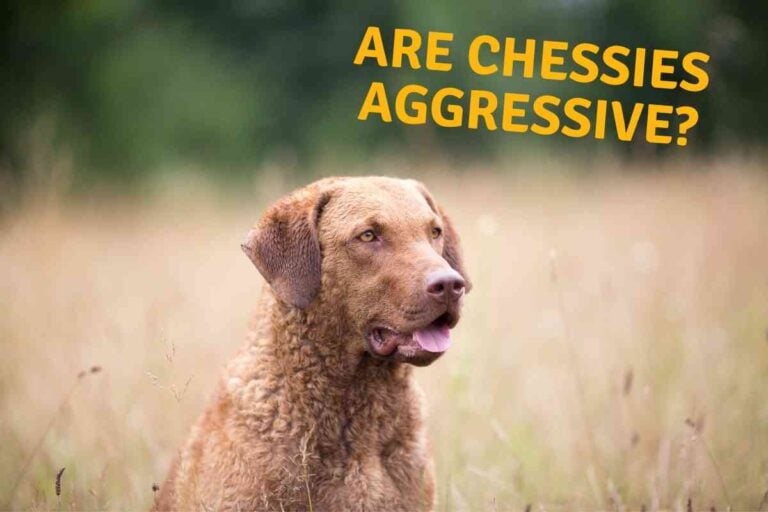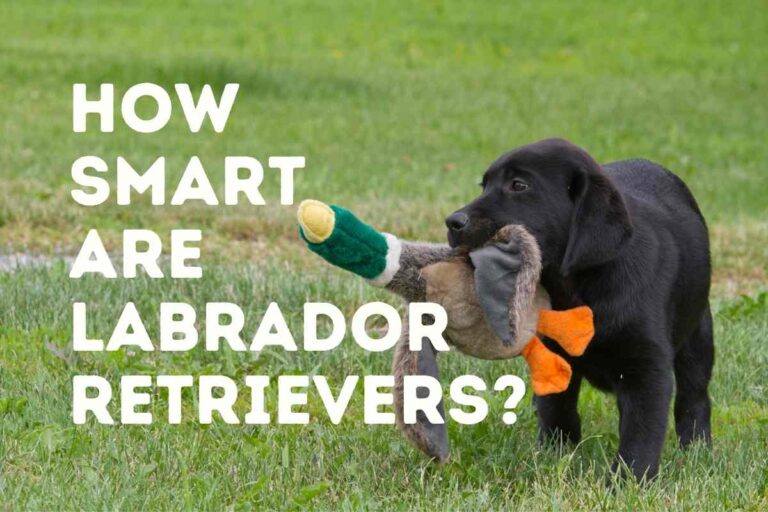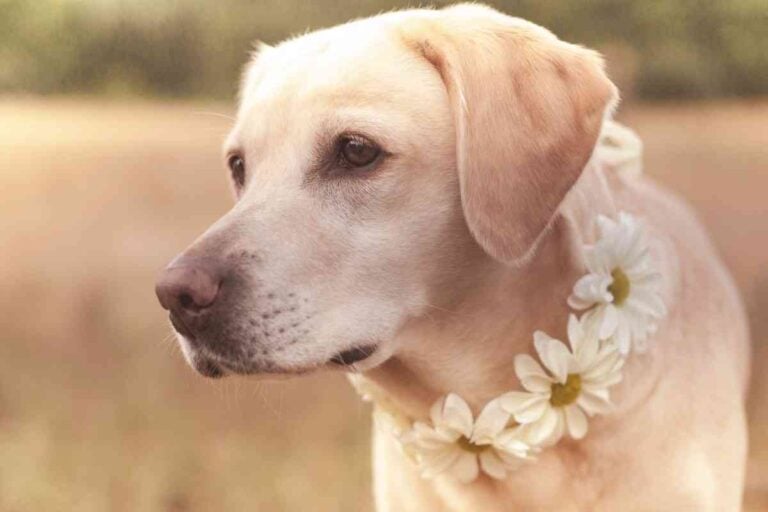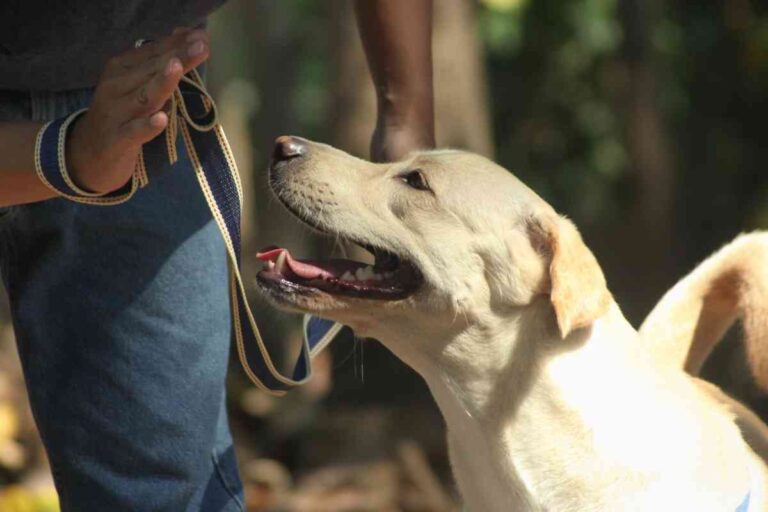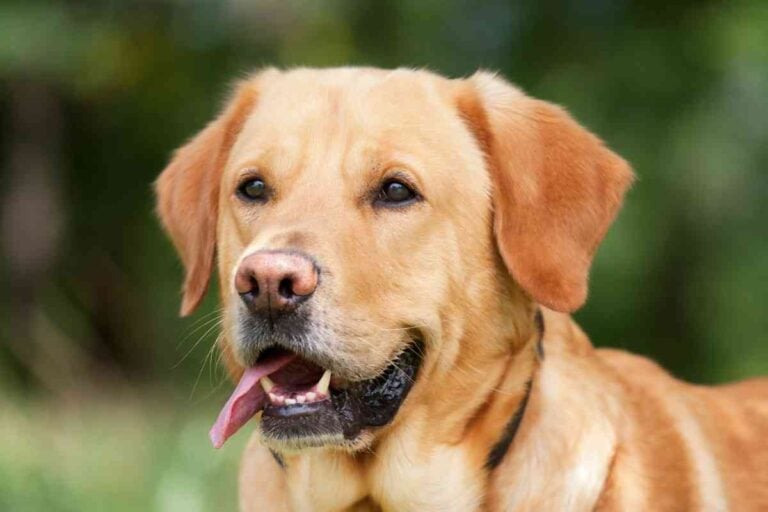Guide to Labrador Retriever Competitions and Shows: Preparing Your Dog for Success
As one of the most popular dog breeds in America, the affable Labrador has found a special place in our homes and in various competitions and shows. This Guide to Labrador Retriever Competitions and Shows delves deep into the world of Labrador competitions, highlighting why these dogs excel and how they’re trained for the spotlight.
From the meticulous precision of conformation shows to the adrenaline-pumping excitement of field trials, Labs have showcased their versatility and prowess time and again.
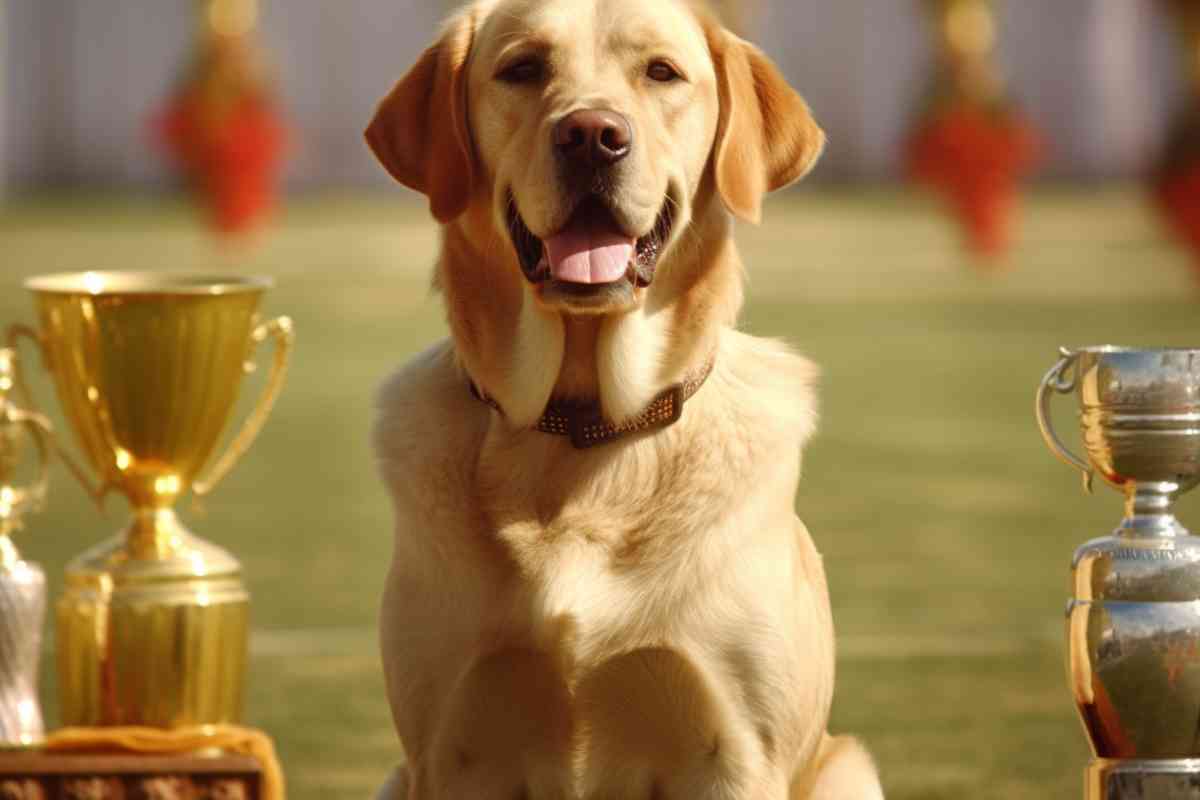
Here’s the complete guide to the kind of shows and competitions your Lab can do, and some tips about how to win!
What is a guide to Labrador competitions and shows?
Labrador competitions and shows are events designed to showcase the versatility, intelligence, and skills of Labrador Retrievers. Ranging from conformation shows, where Labs are judged based on their adherence to breed standards, to dynamic events like field trials, agility courses, and dock diving, these competitions highlight the breed’s natural abilities and training prowess.
Related Content:
- Labrador Retriever Clubs and Associations: Where to Find the Best Resources for Your Furry Friend
- Advanced Training Techniques for Labrador Retrievers: Tips and Strategies
Show and Obedience Competitions for Labs
How to Prepare Your Labrador for a Dog Show
Grasp the Basics
Dog shows, officially termed as conformation, aren’t mere beauty pageants. They assess how closely a dog adheres to its breed’s standard.
It’s essential to know that only purebred Labradors that aren’t spayed or neutered and meet their breed’s criteria are eligible to compete.
Physical Conditioning
A Labrador’s temperament and physique play a pivotal role. Regular exercise, playtime, and social interactions ensure they’re in top form.
Activities like chasing balls can aid in muscle development, making Labs look like the ideal gun dogs they were bred to be.
Grooming Essentials
Regular grooming ensures your Labrador retriever looks its best. This includes daily brushing, especially during shedding seasons, nail trimming, and baths before every show.
On the event day, a light spritz of water, brushing, and a touch of vaseline on their nose can enhance their appearance, making them look like the winners they are.
Training and Socialization
Training sessions, attending obedience trials, and ensuring your dog is familiar with the show environment are paramount.
Your Labrador should be comfortable on a leash, know basic commands, and be at ease around other breeds. Socializing them with other dogs, including dogs that look different like beagles, terriers, or dachshunds, can boost their confidence.
Scout a Show
Before participating, attend a few dog events to familiarize yourself with the environment. This will give you insights into what to expect and how to handle your Lab during the event.
Engage with an AKC Club
Associating with a local American Kennel Club can offer invaluable resources, training classes, and a community of experienced breeders willing to share their knowledge.
Practice at Match Shows
These informal events allow you and your dog to experience a show environment without the pressure. It’s an excellent opportunity to receive feedback from seasoned handlers, judges, and fellow dog owners.
Presentation Matters
Pay attention to both your dog and the judge during the show. Proper presentation can make a significant difference in how your Labrador is perceived. Also, consider your appearance; dressing appropriately can leave a positive impression.
Remember, while aiming for the top spot, the primary purpose is for you and your Labrador to enjoy the experience together. With dedication, training, and a bit of competitive spirit, you can ensure your Labrador shines in the group competition and stands out among other winning dogs.
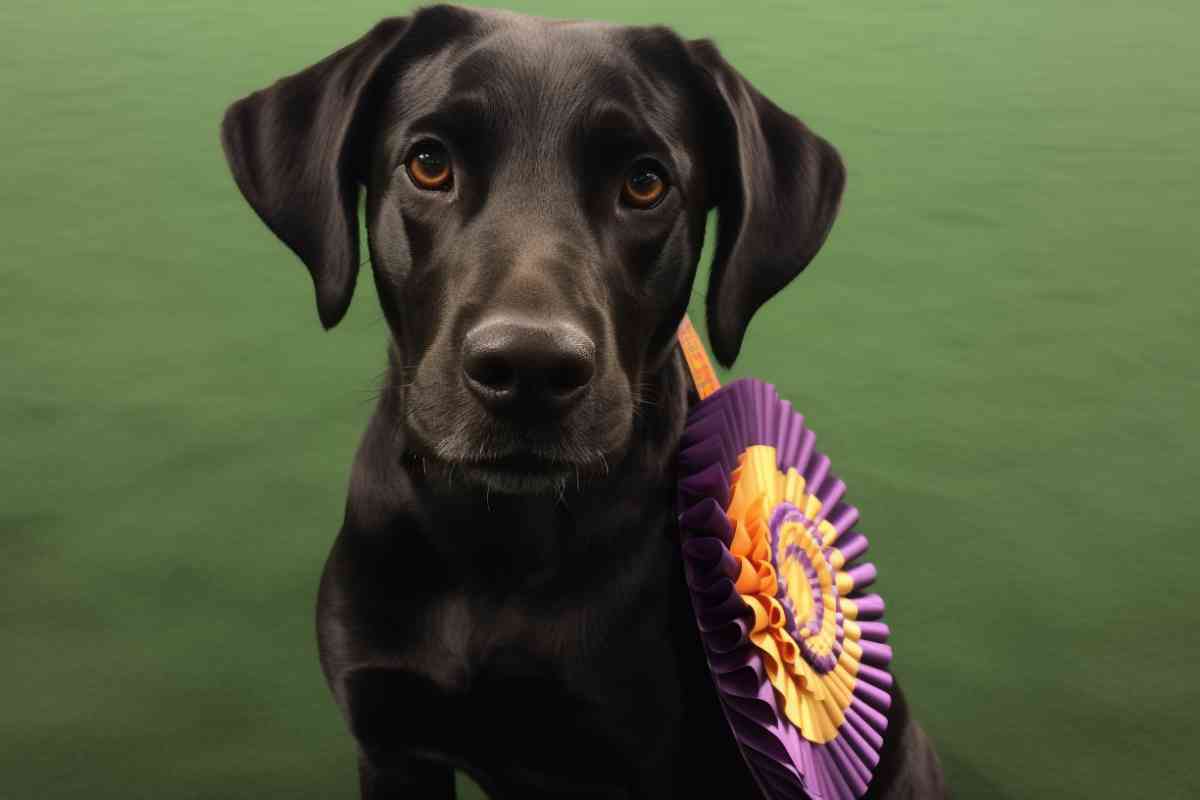
Obedience Trials with Labrador Retrievers
What are Obedience Trials?
Obedience trials, developed in the 1930s and one of the AKC’s oldest sporting events, are structured competitions that assess a dog’s ability to follow specific commands and perform certain tasks amidst distractions.
These trials emphasize a dog’s conformation to behavior standards both at home and in public places, especially in the presence of other breeds. The primary goal is to showcase the dog’s willingness and enjoyment while working with the handler.
Why Labs Excel in Obedience Trials:
Labrador Retrievers, often simply referred to as Labs, are renowned for their intelligence, eagerness to please, and trainable nature. Their innate desire to work in harmony with their handlers gives them an edge in obedience trials.
The Lab’s temperament, combined with their focus and adaptability, makes them stand out in such competitive settings. Their history as retrievers and gun dogs has honed their obedience skills over generations.
Training for Obedience Trials:
- Start Early with Puppy Training: It’s easier to train a puppy than an adult dog. Puppies are more open to new ideas and haven’t developed bad habits.
- Join an AKC Club: Find an AKC Club near you that offers training classes. Observing a class before committing ensures it’s the right fit for you and your Lab.
- Practice Regularly: While attending classes is beneficial, practicing at home is crucial. Keep practice sessions short and engaging, using toys and treats as rewards.
- Progress Through Levels: There are three main levels in competition: Novice, Open, and Utility. Each level builds on the required skills, ensuring your Lab is well-prepared for the challenges.
- Participate in Dog Events: Once your Lab has mastered the necessary skills, consider competing in dog events. Familiarize yourself with the AKC Obedience Regulations and ring procedures before participating.
Beyond Competitions:
Obedience training isn’t just about winning titles or participating in dog events. It establishes a strong communication framework between you and your Lab.
This foundation is not only beneficial for competitions but also ensures that your Lab is well-behaved in various settings. Moreover, a well-trained Lab can be a joy at home and a source of pride in public places.
The skills learned in obedience trials can also serve as a foundation for any other training or tasks you might want your Lab to undertake, making it an invaluable experience for both the dog and the owner.
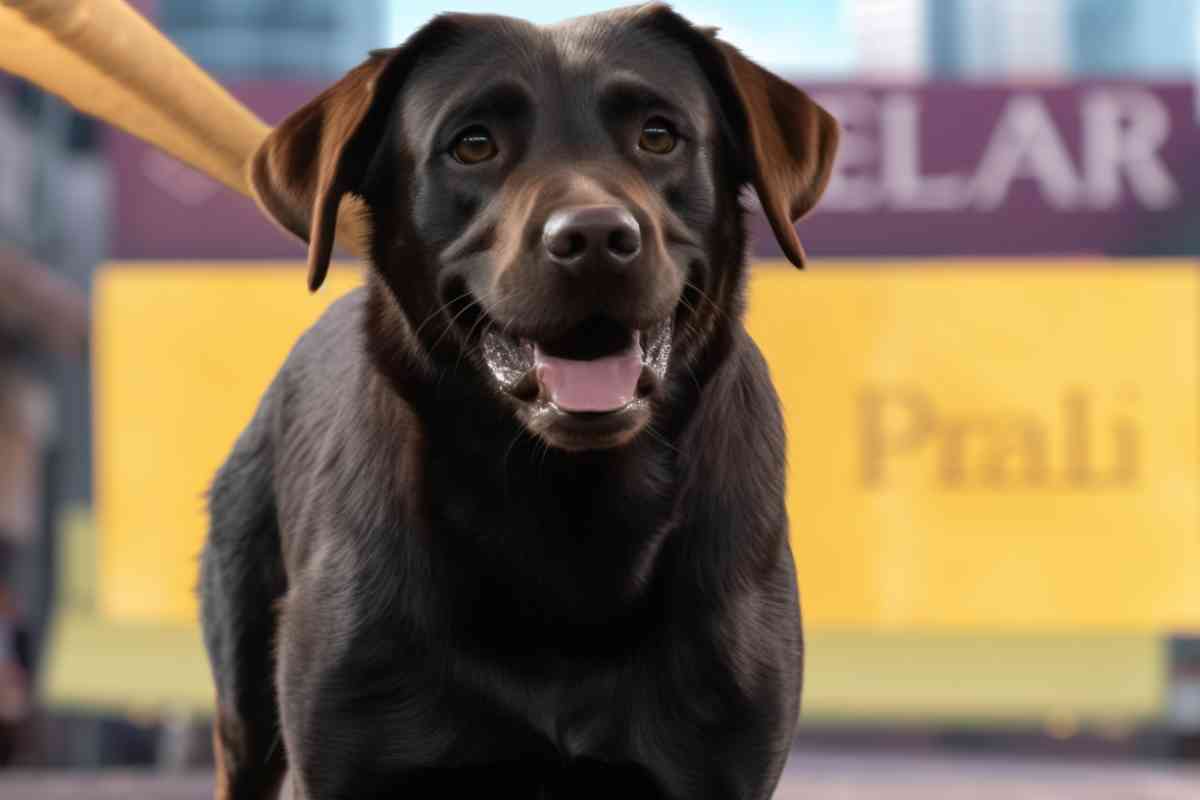
Canine Good Citizen (CGC) Program with Labrador Retrievers
What is the Canine Good Citizen Program?
The Canine Good Citizen (CGC) program, an initiative by the AKC in America, is designed to recognize dogs with exemplary manners at home and in the community.
This 10-skill test emphasizes responsible dog ownership and ensures that the canine adheres to the breed standard of behavior. The CGC program believes that all dogs, from chocolates to yellow labs and even mixes can be standout members of the community with the right training.
Why Labs Excel in the CGC Program:
Labrador Retrievers, commonly known as Labs, especially the English Lab variants, are sociable, adaptable, and eager to please. Their friendly nature combined with their intelligence makes them ideal candidates for the CGC program.
Labs have a rich history, dating back to the 1880s, which has shaped their profile as one of the most popular dog breeds.
Training for the CGC Program:
- Start with Basic Commands: Ensure your Lab is proficient with foundational commands like sit, stay, and come.
- Socialization: Expose your Lab to varied environments, helping them adapt and remain composed in different situations.
- Practice Specific Skills: Focus on skills evaluated in the CGC test, such as accepting a friendly stranger and walking through a crowd.
- Join a Training Class: Enrolling in a CGC training class or a breed competition can provide structured guidance and valuable insights.
- Consistent Reinforcement: Use positive reinforcement, like treats and praise, to motivate and reinforce desired behaviors.
Beyond the CGC Certification:
Achieving the CGC certification is more than just a title. It lays a foundation for any further training or tasks for your Lab, from agility trials to field trials.
A CGC-certified Lab is a joy both at home and in public. The discipline and skills acquired through the CGC program are essential for Labs aiming to become service or therapy dogs, emphasizing the program’s real-world significance.
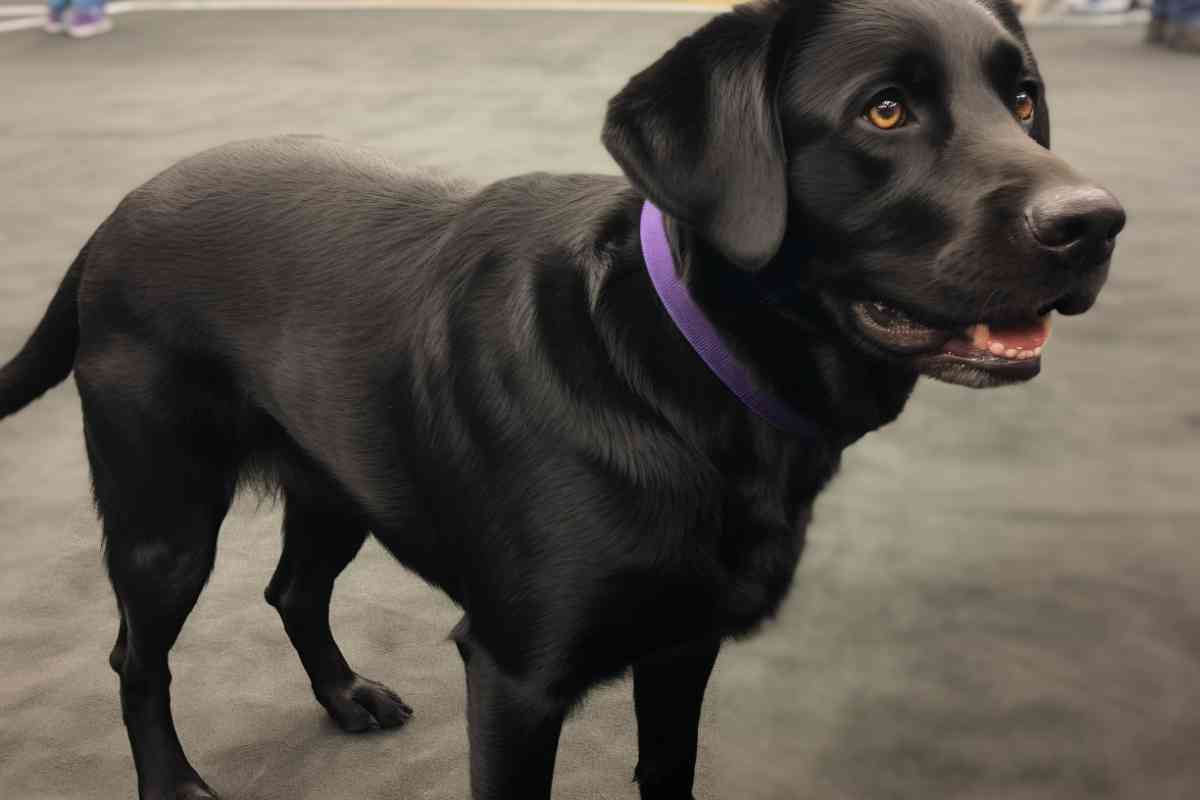
Fun Competitions for Labs
Canine Freestyle with Labrador Retrievers
What is Canine Freestyle?
Canine Freestyle, often referred to as DogWork®, is a choreographed performance set to music that showcases the bond, training, and joyful relationship between a dog and its handler.
Developed by the Canine Freestyle Federation, this artistic discipline aims to present the dog in its best light, emphasizing its grace, beauty, intelligence, and athleticism. The performance is always accompanied by music that complements the dog’s rhythm, ensuring that the dog and handler move in harmony.
Why Labs Excel in Canine Freestyle:
Labrador Retrievers, or Labs, are known for their sociable nature, adaptability, and eagerness to please. While they might not possess the same level of agility as breeds like the poodle, their trainable nature and enthusiasm make them excellent participants in Canine Freestyle.
Their ability to connect with their handlers and their love for activity ensures that they not only have fun but also perform well in these routines.
Training for Canine Freestyle:
- Begin with Basic Movements: Start by teaching your Lab basic movements and commands that can be incorporated into a dance routine.
- Choose the Right Music: Select a piece of music that matches your Lab’s pace and energy. This will ensure that the performance feels natural and fluid.
- Practice Regularly: Like any other discipline, regular practice is key. This will help your Lab get accustomed to the music and the routine.
- Join a Canine Freestyle Class: Enrolling in a class can provide structured training, guidance, and feedback, ensuring that you and your Lab are on the right track.
- Participate in Events: Engage in events organized by the Canine Freestyle Federation to gain experience and learn from other participants.
Beyond Just Dance:
While Canine Freestyle is a delightful and entertaining discipline, it offers more than just dance routines. It strengthens the bond between the dog and the handler, ensuring better communication and understanding.
Moreover, for Labs, it’s not just about being the best but about enjoying the process and having fun. And while your Lab might not be the most athletic participant, the joy and enthusiasm they bring to the performance can be unmatched.
Additionally, the skills learned in Canine Freestyle can serve as a foundation for other training disciplines, making it a versatile and rewarding experience.
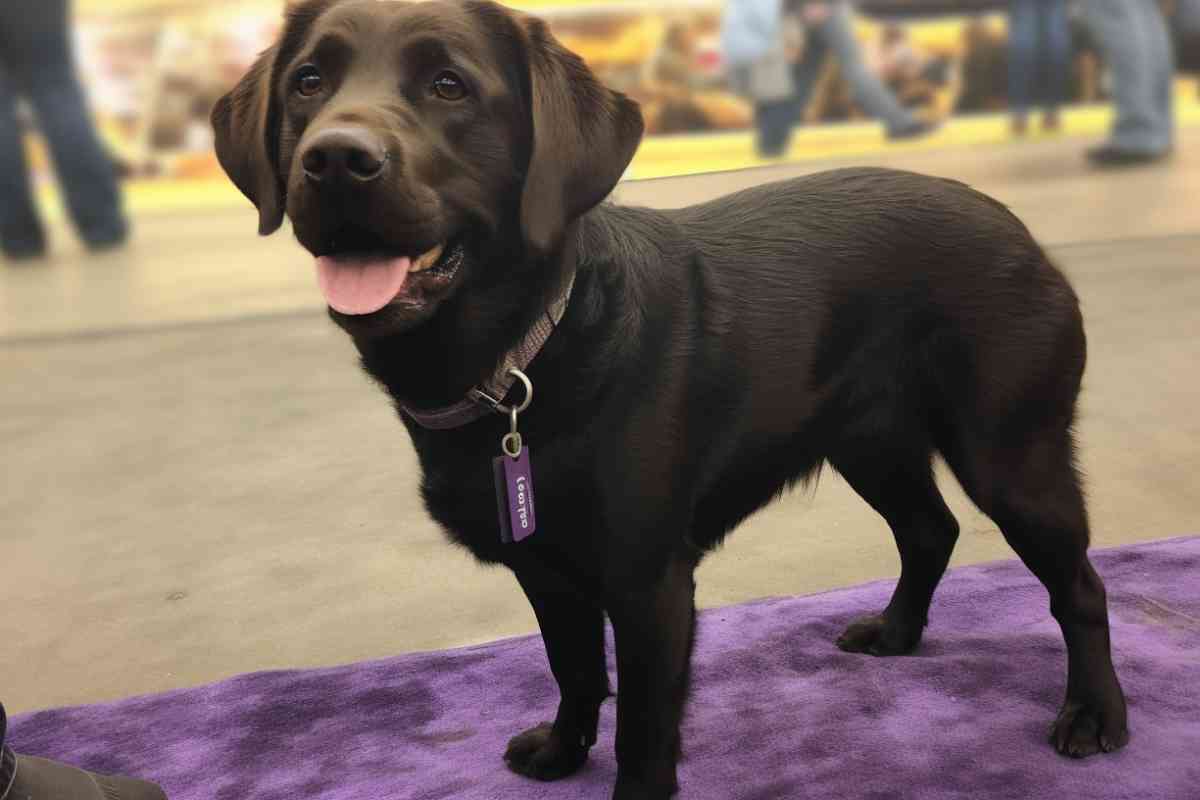
Agility with Labrador Retrievers
What is Agility?
Agility is a dynamic dog sport that emphasizes the bond and coordination between a dog and its handler. In this sport, handlers guide their dogs through a timed obstacle course that includes challenges like tunnels, weave poles, jumps, and seesaws.
The AKC describes agility as one of the fastest-growing dog sports, offering both the dog and handler an opportunity for incredible exercise and deepening their relationship. The thrill of watching a dog nimbly navigate these obstacles, especially in sync with the handler’s cues, is unparalleled.
Why Labs Excel in Agility:
Labrador Retrievers are versatile, trainable, and eager to please, making them suitable candidates for agility. While they might not have the sheer agility of breeds like the border collie, their enthusiasm, intelligence, and adaptability make them competitive participants.
Labs have a natural inclination to work in harmony with their handlers, which is a significant advantage in agility where communication and understanding are paramount.
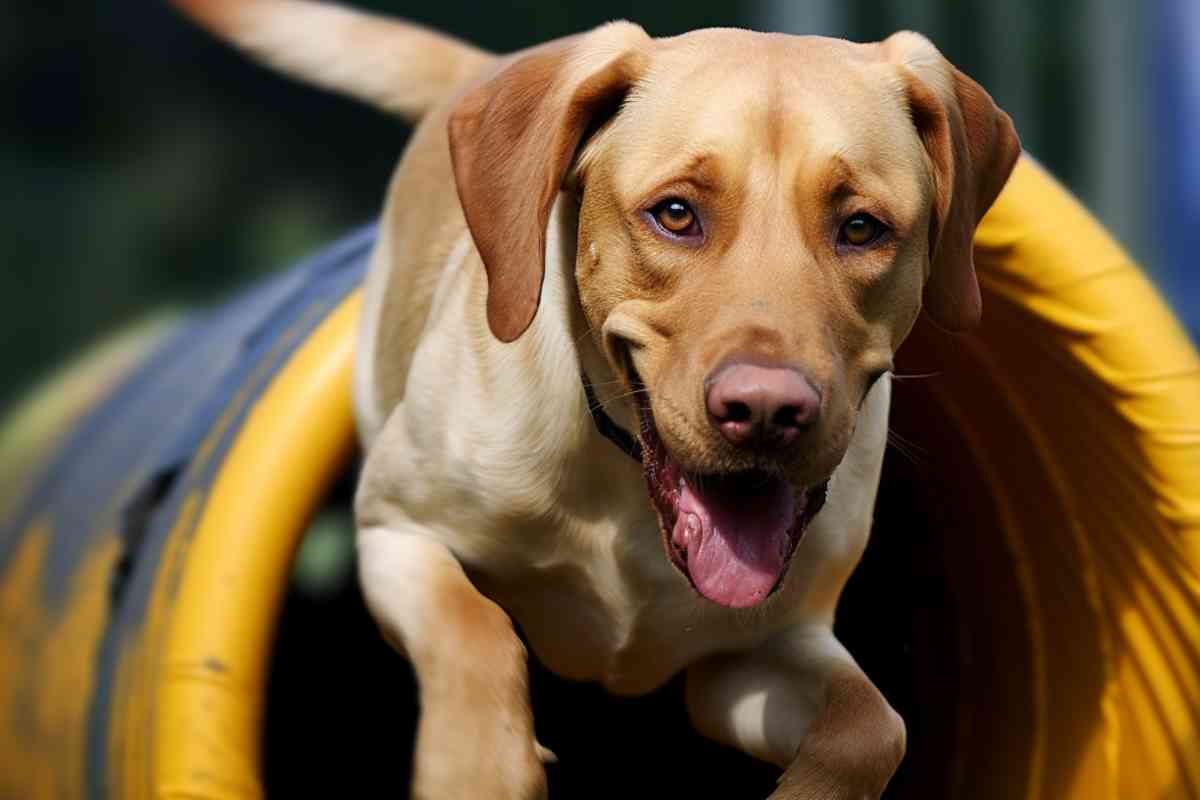
Training for Agility:
- Understand the Basics: Agility involves directing your dog through a pre-set obstacle course within a time limit. Familiarize yourself with the typical obstacles and the rules of the sport.
- Join an AKC Club: Enroll in an agility class at an AKC club. Beginner courses introduce both the handler and the dog to the obstacles and provide foundational training.
- Practice at Home: Reinforce what you learn in class by setting up agility equipment at home. This allows for consistent practice and helps your Lab become more comfortable with the obstacles.
- Positive Reinforcement: Use treats, toys, and praise to motivate and reward your Lab during training sessions.
- Attend Trials: Before competing, attend agility trials to observe and understand the flow of the competition.
Beyond Just Competition:
While agility is competitive, it’s also about having fun and strengthening the bond between you and your Lab.
Even if your Labrador Retriever might not be the most athletic participant compared to breeds like border collies, the joy, enthusiasm, and connection they bring to the course can be unmatched.
Agility offers a platform for Labs to showcase their skills, have fun, and even if they don’t clinch the top spot, the experience is rewarding in itself.
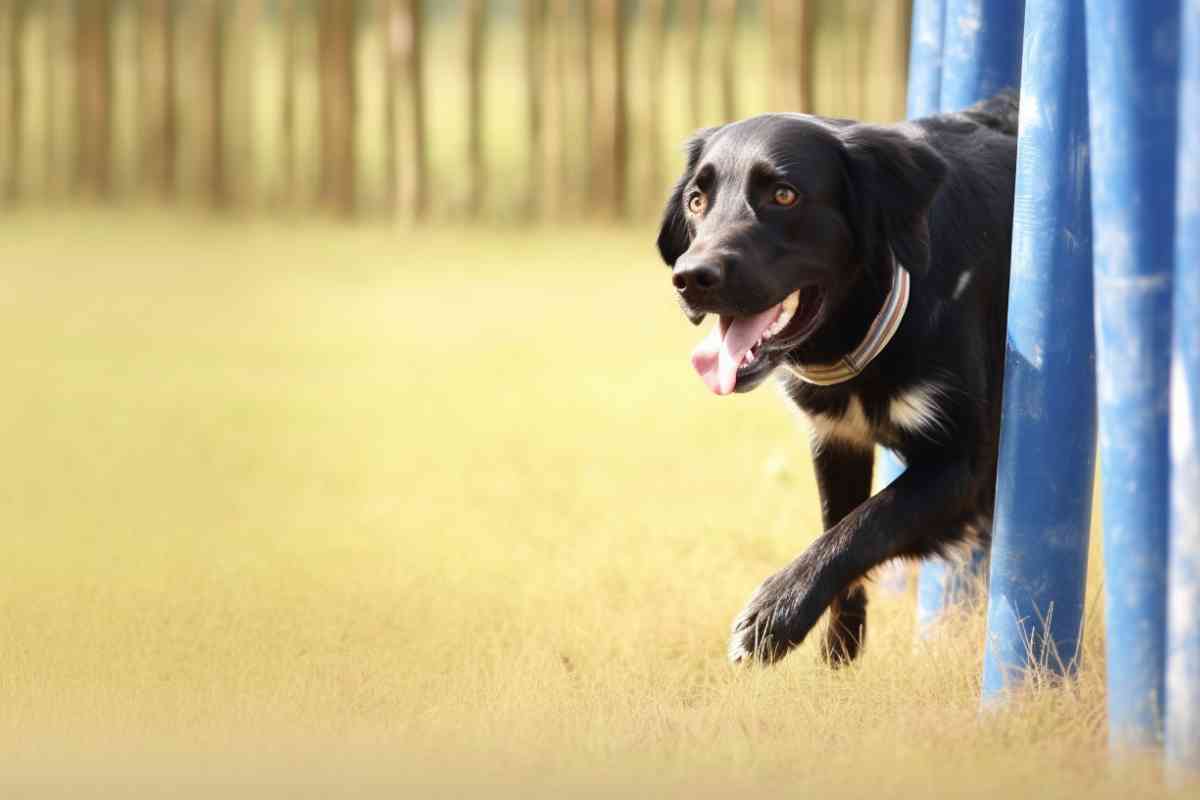
Flyball with Labrador Retrievers
What is Flyball?
Flyball is a team-based relay race sport where teams of dogs, from agile shepherds to energetic Labrador Retrievers, race against each other. The dogs navigate a series of jumps to trigger a spring-loaded toy box that releases a ball.
Retrieving the ball, the dog races back to their handler, passing the next dog in line nose-to-nose. Recognized by the AKC and the United Kennel Club (UKC), this sport emphasizes its fast-paced nature and the bond it fosters between dogs and their handlers.
Why Labs Excel in Flyball:
Labrador Retrievers, especially American Labs. are known for their boundless energy and eagerness to please. Their strong bones and love for retrieving make them natural participants in Flyball.
While they might not hold the champion title as often as some breeds, their enthusiasm ensures they not only have fun but also perform commendably. Labs, whether males or females, are versatile competitors, and their retrieving instincts align perfectly with Flyball’s core.
Training for Flyball:
- Basics First: Introduce your Lab to the jumps and the spring-loaded box. Using a brush to groom them before training can help them feel more comfortable and reduce distractions.
- Focus on Retrieval: Labs, with their iconic otter tail, naturally love to fetch. Reinforce this behavior, ensuring they return the ball swiftly.
- Team Dynamics: Since Flyball is a team sport, practice with other dogs, from German Shepherds to Newfoundlands, and handlers. This ensures smooth transitions during races.
- Join a Flyball Club: Enrolling in a club or shelter that offers Flyball training provides structured guidance. The AKC and LRC have resources to help find appropriate clubs.
- Consistent Practice: Regular practice sessions, sometimes under different judges, refine skills and improve coordination.
Beyond Just Racing:
Flyball offers Labs more than just a race; it’s an opportunity to bond with their handlers and other dogs. It’s an excellent sport for Labs to expend energy, especially if they’ve been around livestock and have pent-up excitement.
The joy they derive from the sport, combined with the energy they burn, makes Flyball a rewarding experience for both the dog and the handler.
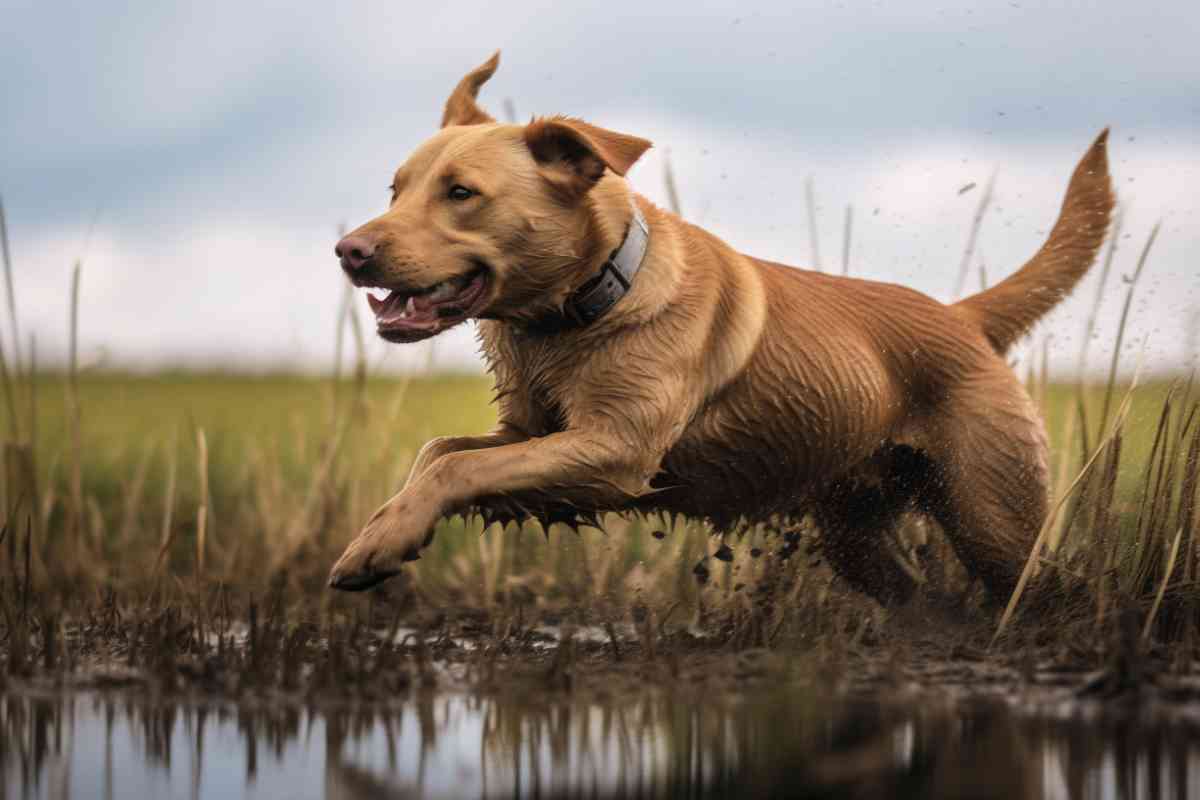
Dock Diving with Labrador Retrievers
What is Dock Diving?
Dock Diving, also known as Diving Dogs, is a thrilling sport where dogs leap off a dock to retrieve a toy thrown into a pool. The primary objective is to achieve the longest possible jump, which can range from a mere two feet for beginners to an impressive 30 feet for seasoned participants.
Recognized by the AKC in partnership with the North America Diving Dogs (NADD), this sport has rapidly grown in popularity due to its simplicity, excitement, and the sheer joy it brings to both dogs and their handlers.
Why Labs Excel in Dock Diving:
Labrador Retrievers have an innate love for water and a natural passion for retrieving, making them ideal candidates for Dock Diving. Their strong bones, powerful limbs, and enthusiastic nature ensure they not only enjoy the sport but also excel in it.
While breeds like the German Shepherd or Newfoundland might have different strengths, Labs, with their iconic otter tail, bring a unique blend of joy and athleticism to the dock.
Training for Dock Diving:
- Water Familiarity: Before introducing your Lab to the dock, ensure they are comfortable in water. Regular swimming sessions can help build confidence.
- Toy Motivation: Use your Lab’s favorite toy to motivate them. The more they desire the toy, the more eager they’ll be to jump.
- Dock Introduction: Start by letting your Lab walk on the dock, gradually encouraging them to jump off it into the water.
- Practice Jumps: Regular practice sessions will help improve the jump’s distance and accuracy.
- Join a Dock Diving Club: Enrolling in a club or attending events organized by the AKC or NADD provides structured training and an opportunity to participate in competitions.
Beyond Just Leaps:
Dock Diving is more than just achieving the longest jump. For Labs, it’s an excellent way to expend energy, especially beneficial for those involved in real hunting.
The sport strengthens the bond between the dog and the handler, offering a platform for Labs to showcase their skills and have fun. Whether competing or just practicing, Dock Diving ensures your Lab gets a good workout, making it both a fun and productive activity.
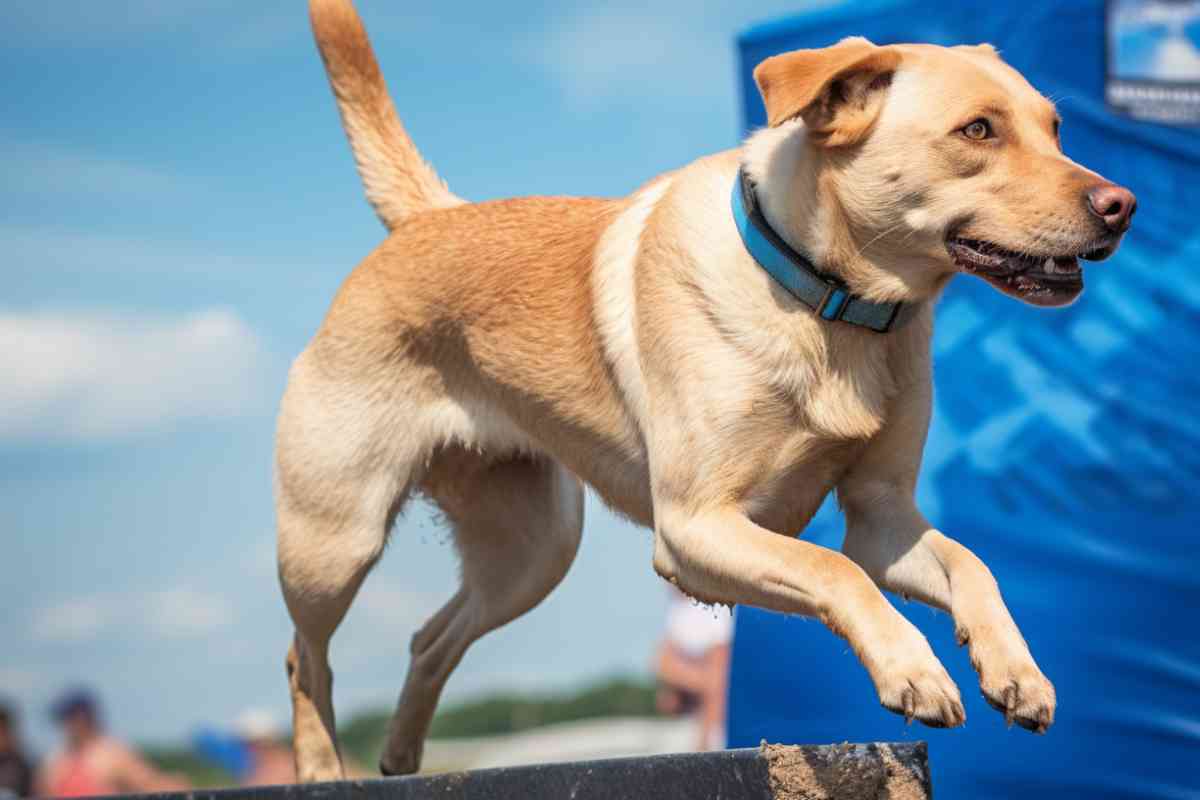
Disc Dog with Labrador Retrievers
What is Disc Dog?
Disc Dog, often referred to as Diving Dogs, is a captivating sport where dogs are trained to catch flying discs (frisbees) in various acrobatic leaps.
Recognized by the AKC in collaboration with the North America Diving Dogs (NADD), this sport is not just about fetching; it’s about the dog’s ability to jump, catch, and work in harmony with their handler’s cues.
The sport has various games and levels, with each game offering achievements based on cumulative points earned, such as Bronze UP, Silver UP, and so on.
Why Labs Excel in Disc Dog:
Labrador Retrievers are renowned for their agility, enthusiasm, and keen fetching instincts. Their athletic build, combined with their love for retrieving, makes them excellent participants in Disc Dog.
While they might not always clinch the champion title, their energy and drive ensure they not only enjoy the sport but also give a commendable performance. Labs, with their strong bones and playful nature, bring a unique blend of athleticism and joy to the field.
Training for Disc Dog:
- Start with Basics: Begin with simple fetch games using a frisbee. Ensure your Lab is comfortable catching the disc in mid-air.
- Focus on Commands: Train your Lab to respond to specific commands like “sit”, “stay”, and “fetch”. This ensures they wait for your cue before leaping.
- Practice Leaps: Encourage your Lab to jump and catch the disc at varying heights and distances. This helps improve their leaping ability.
- Join a Disc Dog Club: Enrolling in a club or attending events organized by the AKC or NADD provides structured training and an opportunity to participate in competitions.
- Consistent Practice: Regular practice sessions help in refining the skills and improving the coordination between the dog and the handler.
Beyond Just Fetching:
Disc Dog is not just about fetching a frisbee; it’s about agility, coordination, and having fun. For Labs, participating in Disc Dog is an excellent way to expend energy, making it both a fun competitive sport and a great way to wear them out.
Whether they’re competing or just practicing, Disc Dog ensures your Lab gets a good workout, making it both an entertaining and productive activity.

Practical Skills and Hunting Trials
Competitive Tracking and Scent Work with Labrador Retrievers
What is Competitive Tracking?
Competitive tracking is a canine sport that tests a dog’s ability to trace and identify a specific scent. It’s a rigorous, athletic event that requires both the handler and the dog to work in tandem.
The sport is akin to a competitive form of canine search and rescue, emphasizing the dog’s conformation to the task. In essence, tracking exercises assess your Lab’s proficiency in following a scent trail.
Why Labs Excel in Tracking:
Labrador Retrievers, often referred to as Labs, possess a keen sense of smell, which is significantly more acute than that of humans.
Their natural instincts, combined with their intelligence and eagerness to please, make them exceptional trackers. Labs have historically been used in roles that require scent detection, making them naturally adept at such competitions. Their temperament and adaptability further enhance their tracking capabilities.
Training for Competitive Tracking:
- Start Simple: Begin with basic scent games at home. Hide treats or toys and encourage your Lab to find them using their nose.
- Introduce Specific Scents: As per the AKC Scent Work guidelines, introduce your Lab to specific essential oils or personal scents. Reward them when they successfully identify and alert you to these scents.
- Simulate Real-Life Situations: Create scent trails that mimic real-life tracking scenarios. This can be done in open fields, parks, or forests. Use different terrains to challenge and train your Lab.
- Attend Classes: While training can be done at home, attending classes at a local Scent Work club or “Nosework” group can provide structured training and valuable insights.
- Participate in Trials: Engage in AKC-sponsored tracking events to gauge your Lab’s tracking skills in a competitive environment.
Beyond Competitions:
Dogs that excel in tracking don’t just shine in competitions. Their skills can be invaluable in real-world scenarios, such as assisting in search and rescue operations.
A Lab that’s a great tracker can be called upon to aid in locating missing persons, showcasing the practical application of their tracking prowess.
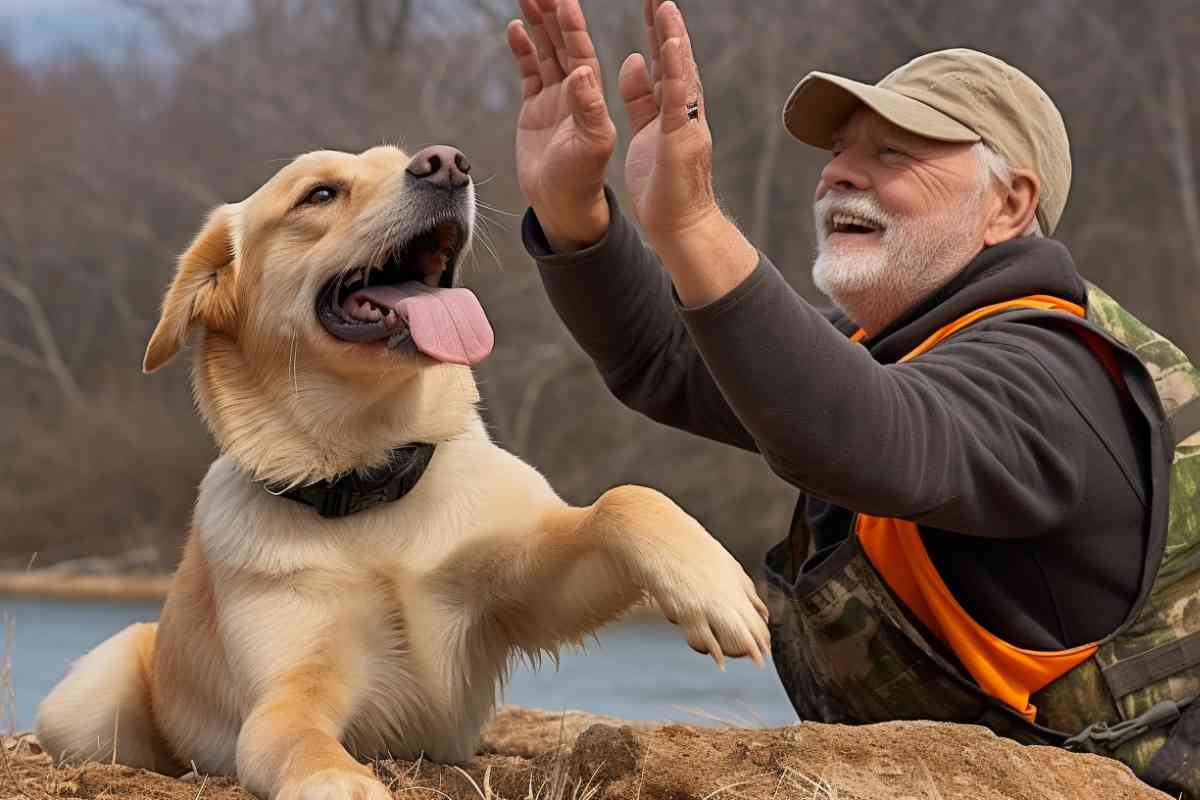
Retriever Hunting Tests with Labrador Retrievers
What are Retriever Hunting Tests?
Retriever Hunting Tests are designed to evaluate the abilities of Retrievers in a hunting environment. These tests assess various skills, from the dog’s desire to find birds to their ability to point long enough for the handler to reach them.
Organized by the AKC, these tests are structured in progressive levels, starting with the Junior Hunter test, which gauges a dog’s potential as a hunter. As the dog advances, they can participate in the Senior and Master Hunter tests, which have more stringent criteria, evaluating skills like marking, perseverance, steadiness, control, and response.
Why Labs Excel in Retriever Hunting Tests:
Labrador Retrievers, with their innate love for water and strong retrieving instincts, are naturally predisposed to excel in hunting tests. Their keen sense of smell, intelligence, and eagerness to please make them standout participants.
Labs have been historically used in hunting, making them well-suited for these tests. Their ability to mark and retrieve, combined with their perseverance and control, ensures they not only enjoy the tests but also perform commendably.
Training for Retriever Hunting Tests:
- Familiarize with Terms: Before participating, it’s essential to understand the various terms used in Hunting Tests. The AKC provides a glossary to help with this.
- Join a Local AKC Club: Find a local AKC club that conducts Retriever Hunting tests. Attend these tests to observe and understand the flow.
- Understand the Rules: Acquire a copy of the rules and regulations and attend Hunting Test Seminars to learn about the standards your Lab will be judged against.
- Start with Junior Hunter Test: This test evaluates your Lab’s basic hunting potential. Once they pass this, you can progress to the Senior and Master levels.
- Consistent Practice: Regular practice sessions, simulating test environments, will help refine your Lab’s skills and improve their performance during actual tests.
Beyond Just Tests:
Retriever Hunting Tests are not just about evaluating a dog’s hunting skills; they’re about strengthening the bond between the dog and the handler and understanding the dog’s natural instincts.
For Labs, these tests are an excellent way to channel their energy, making them both a fun competitive sport and a practical training ground for real hunting. Whether participating in tests or actual hunting, the skills acquired ensure your Lab is well-prepared and enjoys the process.
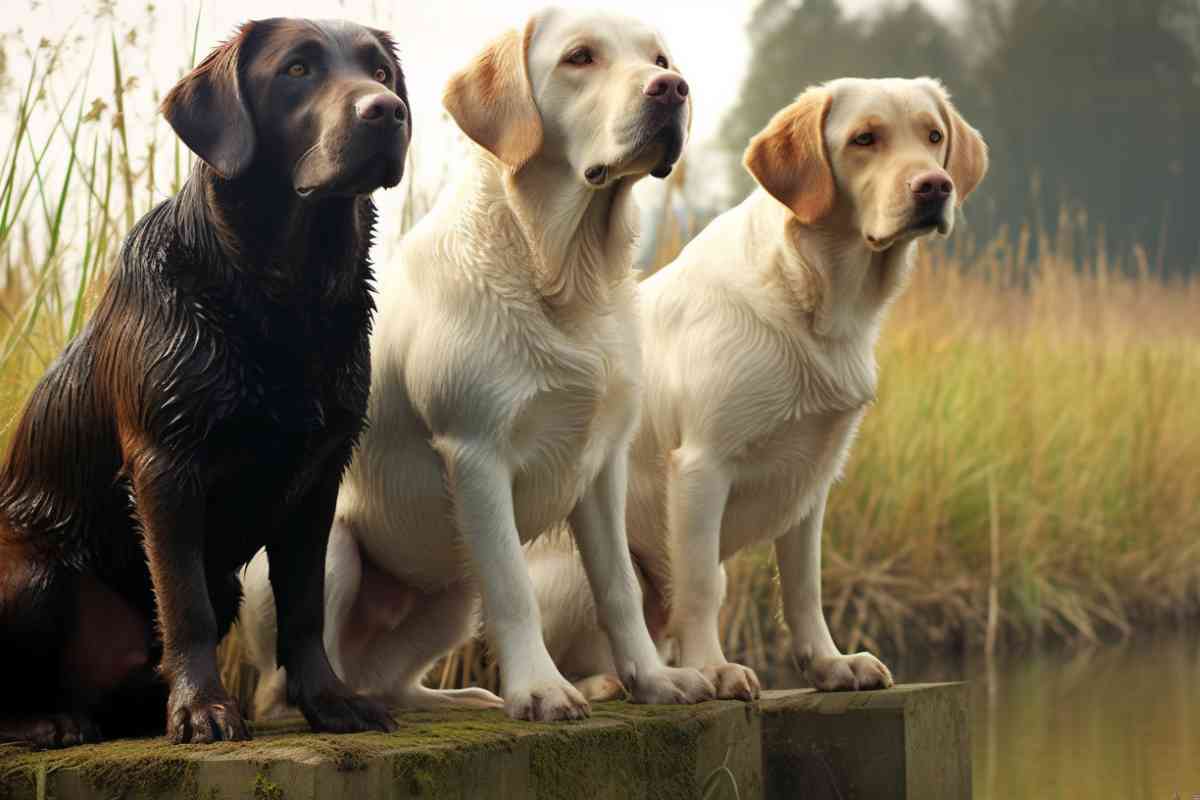
Retriever Field Trials with Labrador Retrievers
What are Retriever Field Trials?
Retriever Field Trials are competitive events designed to evaluate the natural abilities of Retrievers in a hunting scenario.
These trials test various skills, from the dog’s response to a whistle to their ability to retrieve, heel, and even swim through small ponds. Organized by the AKC, these trials have different categories, including the Qualifying Stake, Open, Limited, Special and Restricted All-Age Stakes, and Amateur All-Age Stake.
Each category has its own set of criteria and challenges, ensuring a comprehensive evaluation of the dog’s hunting prowess.
Why Labs Excel in Retriever Field Trials:
Labrador Retrievers, being one of the most popular dog breeds in America, have an innate love for water and a strong retrieving instinct. Their keen sense of smell, intelligence, and eagerness to please make them standout participants in field trials. Historically used in hunting,
Labs are naturally predisposed to excel in these trials. Their ability to respond swiftly to commands, combined with their perseverance and control, ensures they not only enjoy the trials but also perform commendably.
Training for Retriever Field Trials:
- Start Early: It’s easier to train a puppy than a full-grown dog. Begin the training process as early as possible.
- Join an AKC Club: Local AKC clubs often offer training sessions and practice opportunities. These clubs are also a great place to seek advice and guidance from experienced handlers.
- Understand the Rules: Attend a few retriever field trials in person and acquire the AKC rulebook. The more trials you witness, the better you’ll understand the intricacies of the sport.
- Training Essentials: Training should cover basic commands, response to a whistle, retrieving, heeling, and swimming. Many trials involve water challenges, so ensure your Lab is comfortable swimming.
- Choose the Right Trial: Once ready, select the appropriate trial category for you and your Lab. Each category offers a unique set of challenges, so choose wisely.
Beyond Just Trials:
Retriever Field Trials are not just about evaluating a dog’s hunting skills; they’re about understanding the dog’s natural instincts and strengthening the bond between the dog and the handler.
For Labs, these trials are an excellent way to channel their energy, making them both a fun competitive sport and a practical training ground for real hunting. Whether participating in trials or actual hunting, the skills acquired ensure your Lab is well-prepared and enjoys the process.
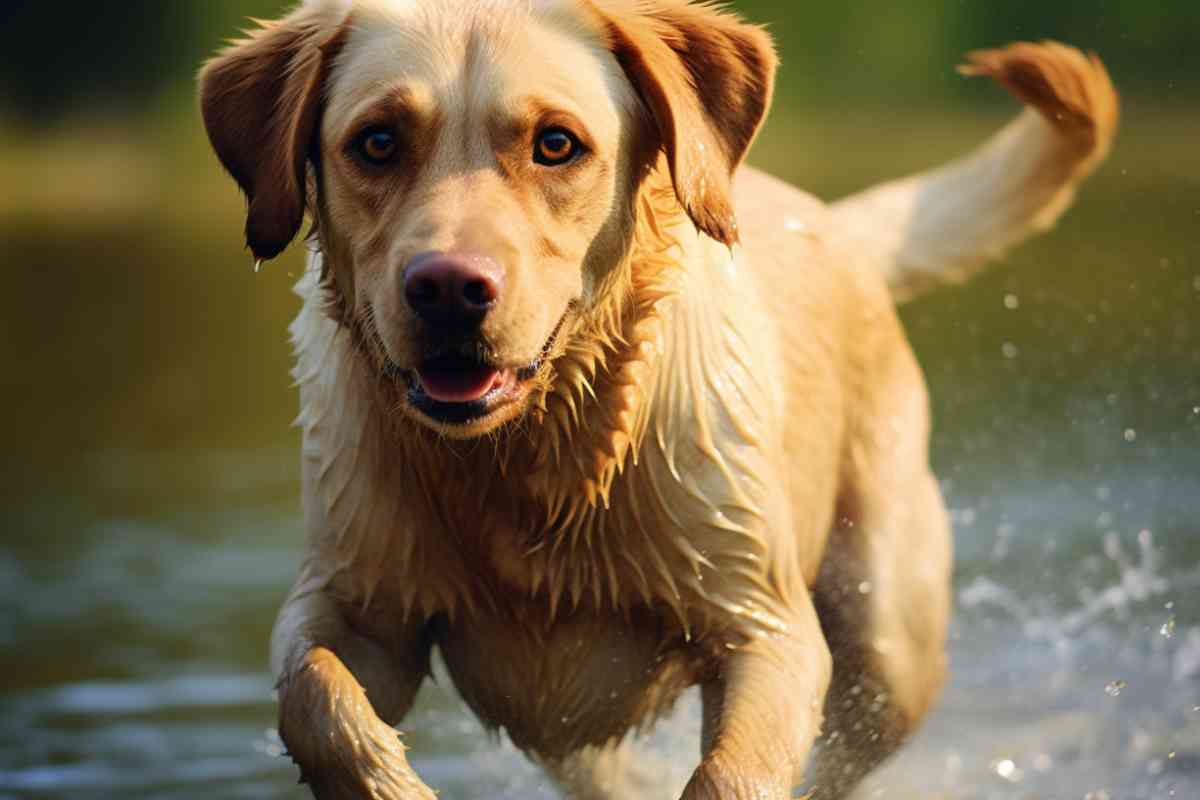
Conclusion to the Guide to Labrador Retriever Competitions and Shows:
The world of Labrador competitions and shows is as diverse and dynamic as the breed itself. Whether they’re leaping off docks, navigating agility courses, or showcasing their impeccable manners in obedience trials, Labrador Retrievers never cease to amaze.
These events not only highlight the breed’s versatility but also strengthen the bond between the dog and the handler. As we’ve journeyed through the various facets of Labrador competitions, one thing remains clear: with the right training, understanding, and mutual respect, every Lab can shine in its own unique way, making them true champions both in the ring and in our hearts.

